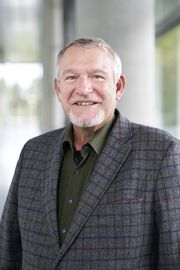AGGRESSOTYPE/ MATRICS
Multidisciplinary Approaches to Translational Research in Conduct Syndromes

Key Words
Aggression, ADHD, Hyperkinetic Conduct Disorder, CD, CU, Subtyping
Project Management
Cooperation Partners
- Stichting Katholieke Universiteit, Netherlands
- Ecole Polytechnique federale de Lausanne, Switzerland
- Istituto superior di Sanita, Italy
- Genoway S.A., France
- King’s College London, United Kingdom
- Central Institute of Mental Health in Mannheim, Germany
- Academisch Ziekenhuis Groningen, Netherlands
- University of Exeter, United Kingdom
- Universita degli Studi di Cagliari, Italy
- neuroConn GmbH, Germany
- University of Ulm, Germany
- Centre Hospitalier Universitaire de Montpellier, France
- Phenosys GmbH, Germany
- Concentris Research Management GmbH, Germany
- Consorci Institut d’Investigacions Biomediques August Pi i Sunyer, Spain
- Servicio Madrileno de Salud, Spain
- Certain Indexes Ltd., United Kingdom
- Drug Target ID BV, Netherlands
Project Term
01.03.2014-28.02.2019
Link Project Website
Background & Aim of the Project
Children and adolescents who suffer from conduct disorders show markedly aggressive behavior patterns and/or permanent defiant behavior.
A distinction is made between the following types of aggression:
- uncontrolled, emotionally influenced “impulsive aggression“.
- proactive, targeted and planned "instrumentalized aggression".
and
- aggression lacking social emotions (callous unemotional (CU) traits)
These different forms of aggression are each based on different specific contexts. A better understanding of the underlying mechanisms (genetic, cognitive and neurobiological) is urgently needed for the development of therapies that are specifically tailored to the respective forms of aggression.
As part of the AGGRESSOTYPE and MATRICS project, both children (8-12 years) and adolescents (13-18 years) showing social problem behavior as well as healthy control subjects of the same age groups are thoroughly examined and their behavior assigned to different defined subtypes.
Description of the Project
The project focuses on so-called translational research, i. e. it is intended to combine clinical and basic research in order to make the findings mutually useful in the sense of a deeper understanding.
The clinical studies include questionnaires, a clinical interview and a functional magnetic resonance imaging (fMRI) measurement, which is used to show changes in brain metabolism during the performance of various neuropsychological tests. In addition, various laboratory tests are carried out.
Some study collaborators carry out additional intervention studies, i. e. the participants receive neuro/biofeedback therapy after the examinations.
Using specially developed software ("machine/Bayesian learning") and with the help of the existing comprehensive data pool, predictions are also made as to whether aggressive behavior will persist into adulthood.
In Ulm, 22 children and adolescents participated in the study (approx. 270 participants at nine different institutions in six European countries).
Recruitment and data collection in Ulm is completed.
Contact Address
Funded by:
European Union‘s Seventh Framework Programme

